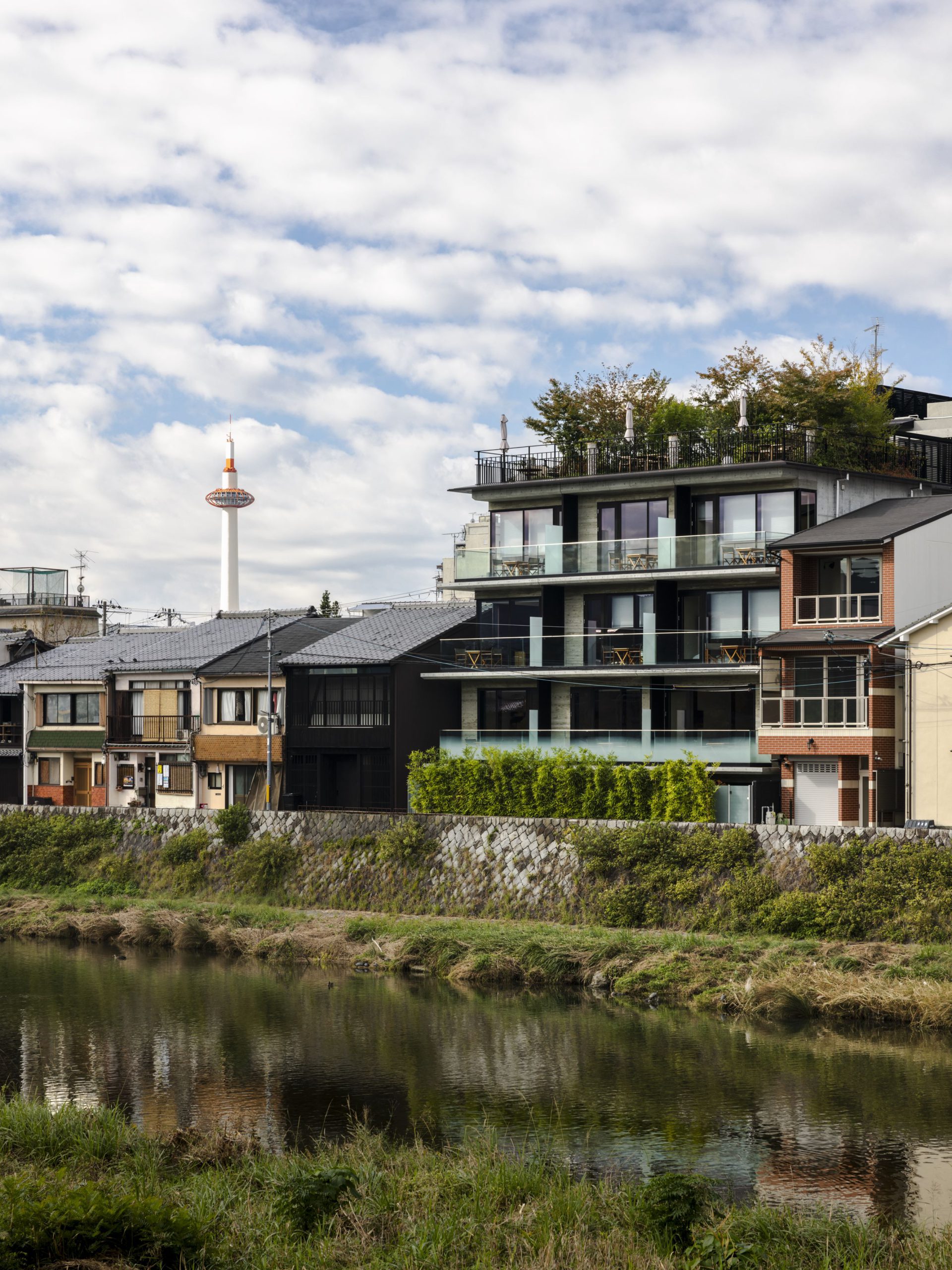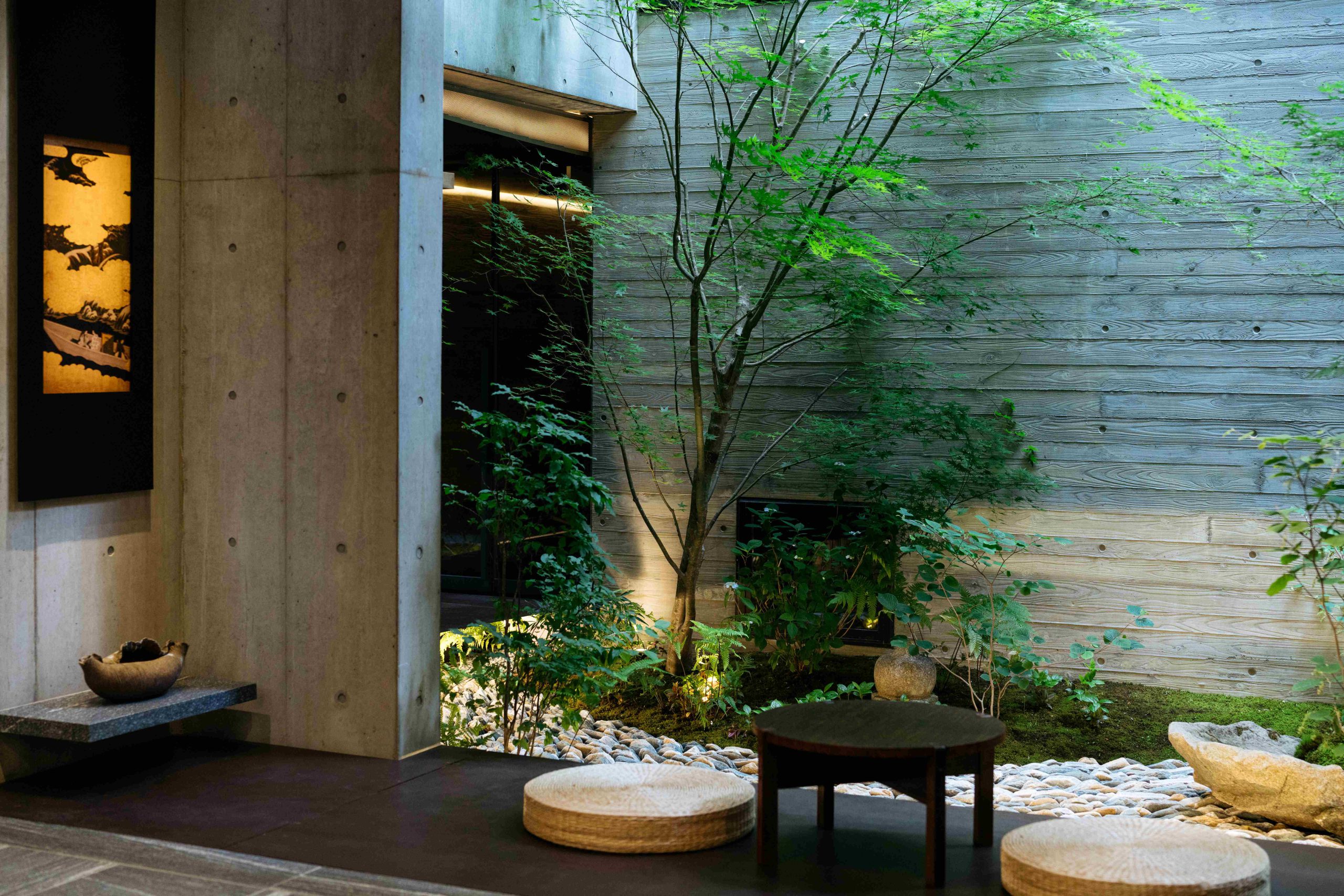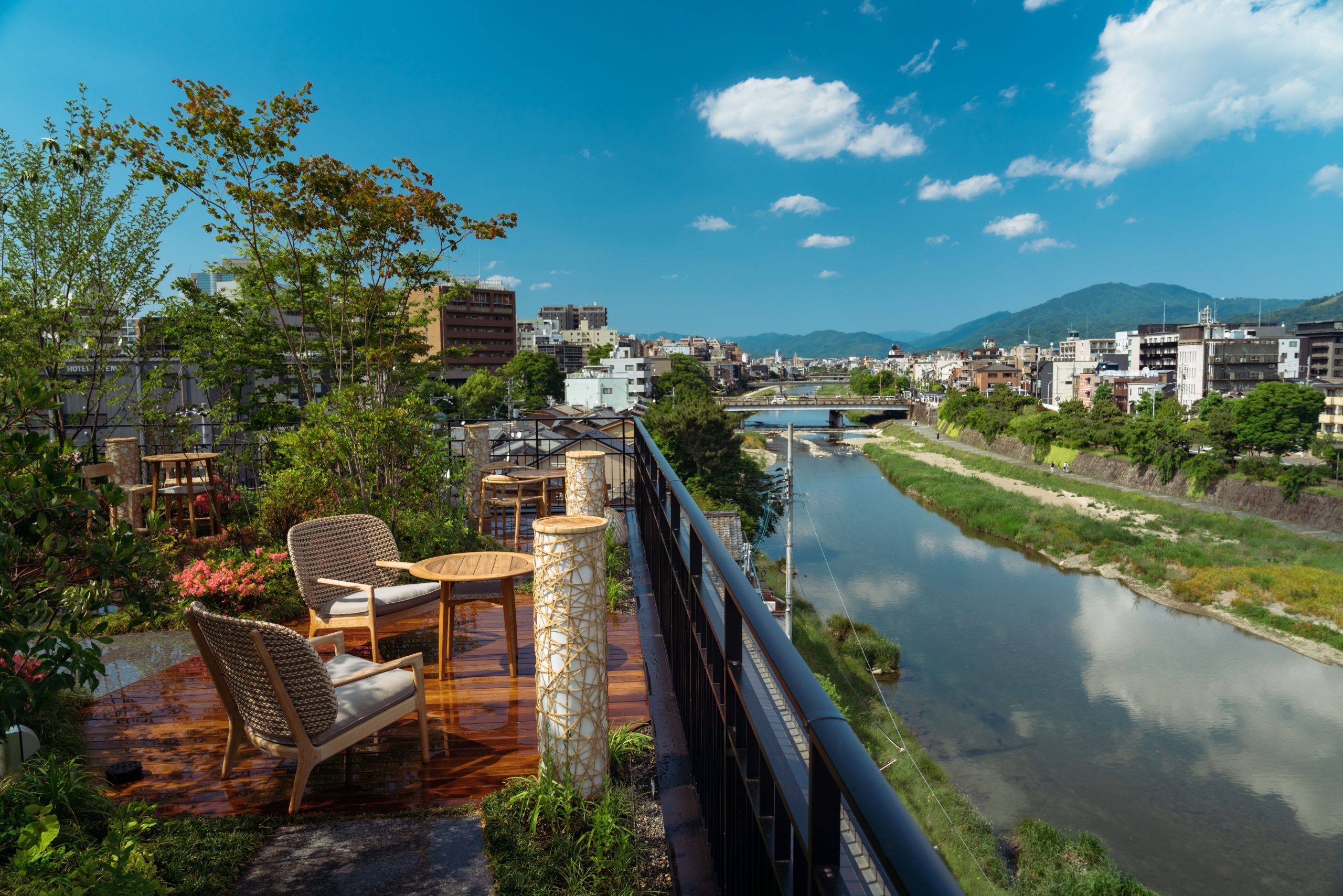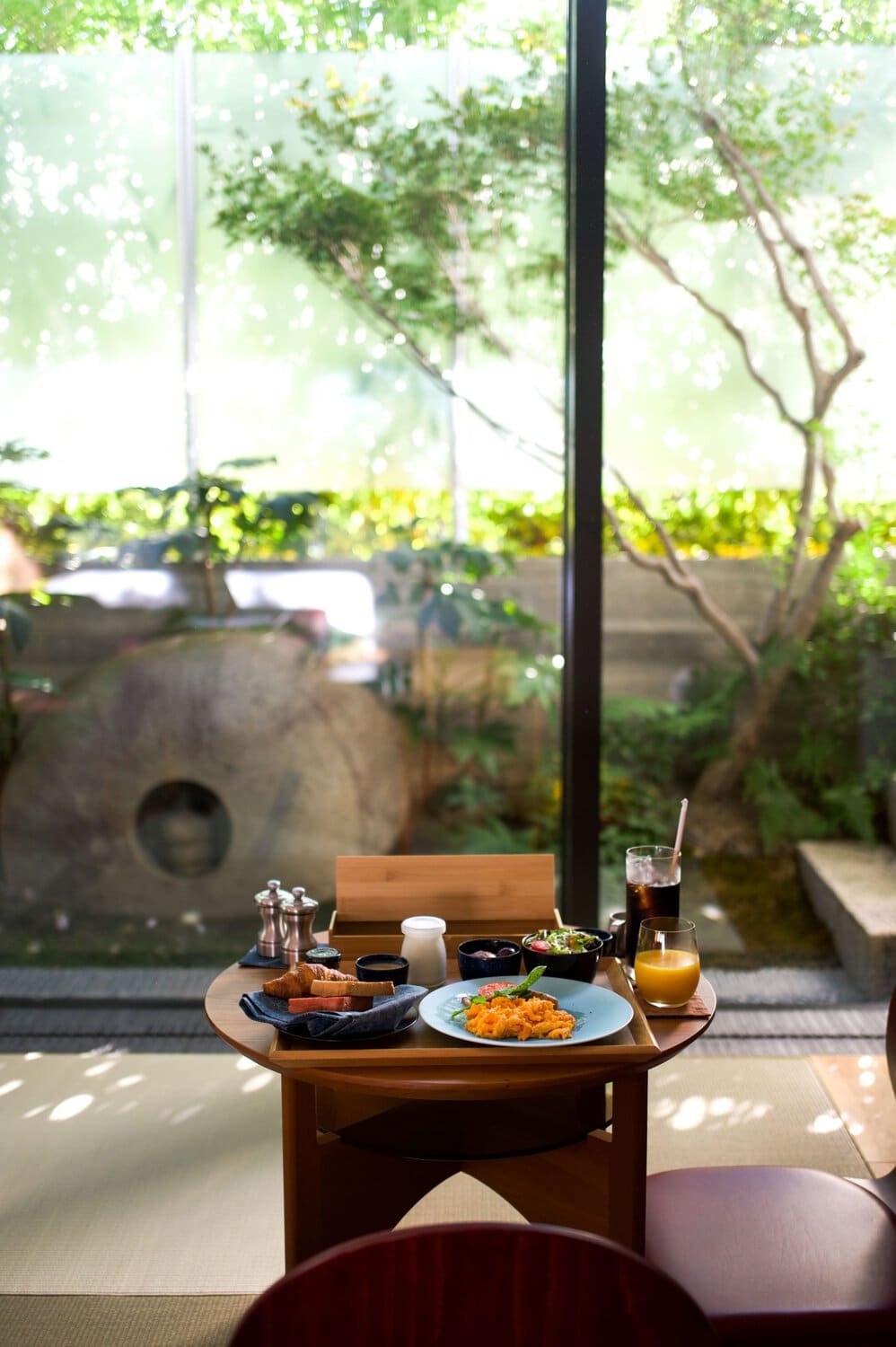Genji Kyoto: Roots of Time
A JOURNEY TO KYOTO IS NEVER COMPLETE WITHOUT A VISIT TO A JAPANESE GARDEN.

Hotel Genji, located on the clear waters of the Kamo River, carries this heritage within. Its name and design are a quiet homage to The Tale of Genji — a literary masterpiece from the Heian period in which gardens are emotional landscapes and symbolic spaces. Guests who stay here step into a world that exists between past and present, fiction and reality, inside and outside — as if gently drawn into the handmade washi pages of the 1,000-year-old novel.
Three gardens — and with them, three distinct atmospheres and philosophies — have been carefully composed by landscape architect Marc Peter Keane, who has lived in Kyoto for over 20 years.
UKIFUNE GARDEN

In the lobby, a tranquil scene unfolds. The drifting boat Ukifune is represented by a large stone floating in a pebble stream surrounded by moss. It symbolizes the thoughts of the novel’s heroine, adrift in the currents of life. Beyond its literary reference, this Zen garden alludes to the idea that Earth itself is a drifting vessel, carrying its fleeting cargo — life — through the cosmos.
SKY FOREST GARDEN

From the rooftop, the views of the river and surrounding mountains are nothing short of breathtaking. The terrace is a shichū’in — a hidden oasis in the heart of the city. Lush plants mentioned in The Tale of Genji form a harmonious ensemble here on the top floor, expressing a deep reverence and love for nature and gardens — sentiments that are also vividly present in the novel.
POCKET GARDENS

Then there are the small gardens that blend seamlessly with the guest rooms, expressing the Japanese longing to bring nature indoors. Nearly every room features one of these miniature gardens. Each one includes an antique stone object that serves as a sculptural focal point. The concept of tsuboniwa — a small courtyard garden — was already common during the time of The Tale of Genji. The court ladies in the novel even adopted the names of plants from their personal tsuboniwa. Perhaps this is a quiet invitation to ask yourself which plant might speak for you.
